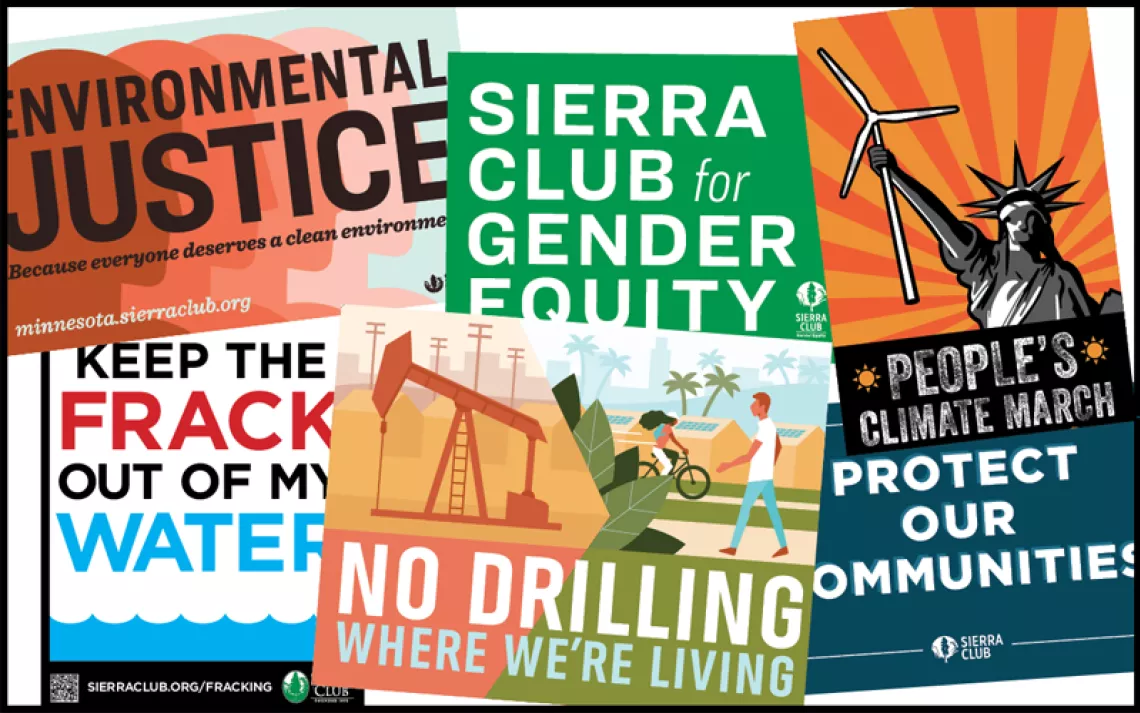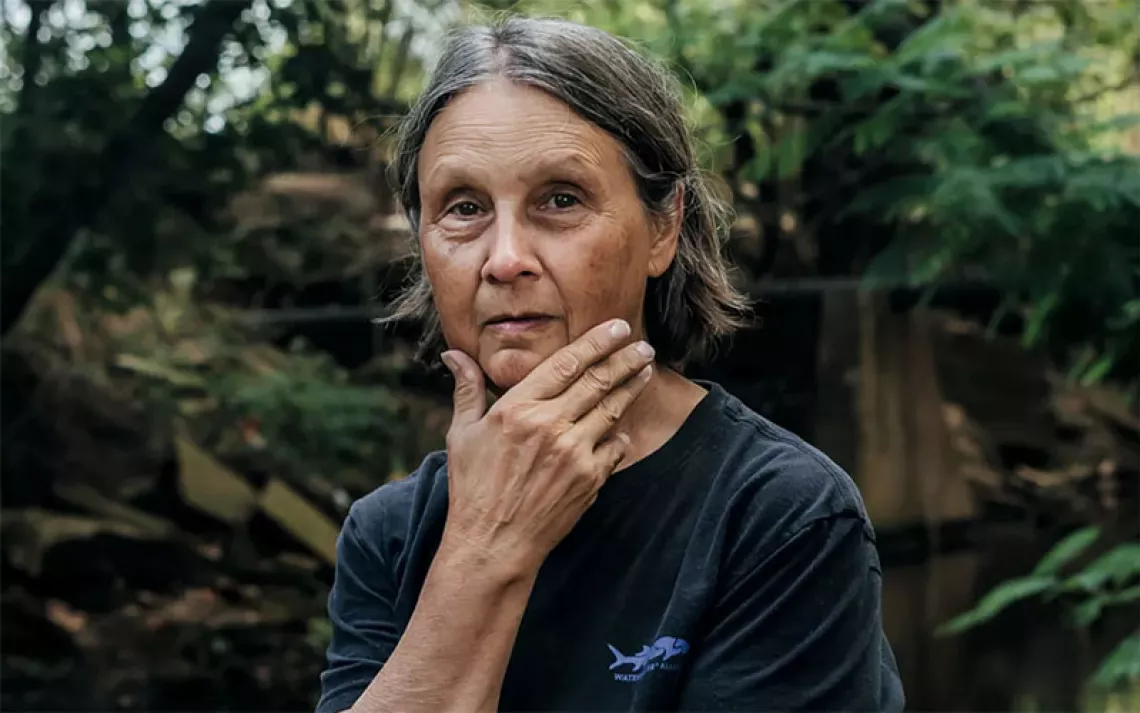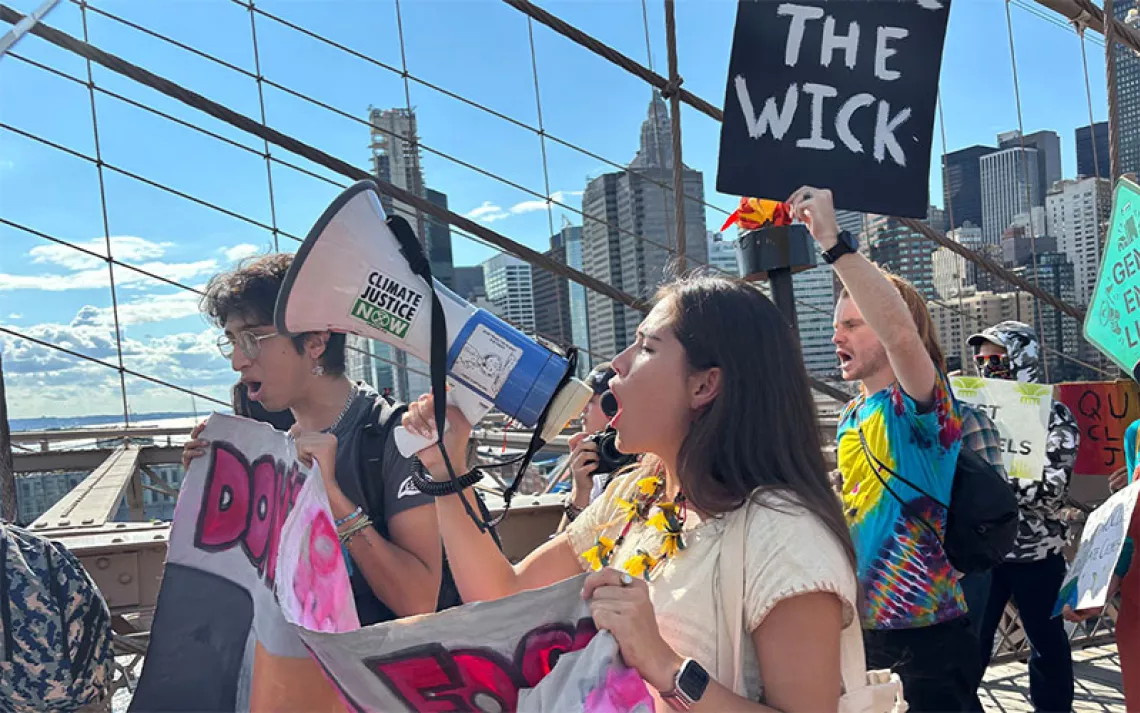The Lookout: A Roundup of News From the Sierra Club
Alerts, victories, and updates from around the country

By the Numbers
- 421 parts per million: The concentration of carbon dioxide in the atmosphere measured in May. That's 50 percent higher than CO₂ levels before the Industrial Revolution and a level Earth hasn't seen in millions of years.
- 35: The percent increase in monarch butterflies that overwintered in Mexico last winter compared with the previous year.
- 0: The carbon budget left to accommodate new coal plants, according to the Intergovernmental Panel on Climate Change. To limit global temperature rise to 2.7°F, coal use needs to fall by 75 percent by 2030.
- 6,200: The number of new union jobs created by Ford and the United Auto Workers in their push to manufacture electric vehicles.
Alerts
Earth Comes First
Despite local opposition, the Federal Aviation Administration approved a license for the biggest rocket in history, SpaceX's Starship. The project will expand operations in Boca Chica, Texas, an unincorporated community on the Gulf of Mexico. Explosions, fires, and water contamination from SpaceX threaten nearby communities as well as sensitive coastal ecosystems that are home to endangered species, including the ocelot and the snowy plover.
» Read more: sc.org/spacex
Invisible but Deadly
A recent inspection by air above Bakersfield, California, revealed that two idle oil wells, located 370 feet from a residential neighborhood, are leaking massive amounts of methane, with concentrations of 50,000 parts per million and 20,000 ppm, respectively. Methane is a greenhouse gas that, in the short term, has 80 times the global warming potential of carbon dioxide. Oil and gas wells also leak a cocktail of chemicals called volatile organic compounds that are associated with asthma, cancer, and nervous-system damage.
» Read more: sc.org/bakersfield
Clean Schools
The Biden-Harris administration approved a program to replace diesel school buses. This year, under the new program, the EPA will distribute $500 million for schools to purchase electric buses. The program also allocates $4.5 billion for future years. Diesel engines are the single largest source of black carbon, a potent driver of global warming that is also terrible for public health; it's associated with cancer, heart and lung disease, and asthma.
Victories
Win for Wildlife
In a major legal victory in July, a federal district court restored comprehensive Endangered Species Act protections for hundreds of species and their habitats when it threw out harmful regulations put in place by the Trump administration. The case involved a lawsuit filed by Earthjustice on behalf of the Sierra Club and other environmental groups, joined later by a group of states. "In the midst of a global extinction crisis," said Sierra Club attorney Karimah Schoenhut, "the court's decision to vacate the rules will help ensure that imperiled species receive the protections they desperately need."
Clean Air for All
Following extensive organizing by the Sierra Club's Beyond Coal campaign, Environmental Law Program, and Grand Canyon Chapter, the Arizona Corporation Commission voted to reject a proposal from the Salt River Project to expand the gas-fired Coolidge Generating Station. The proposed expansion included 16 new gas turbines and would have polluted the historically Black community of Randolph, which already suffers the environmental and health impacts of the Coolidge plant.
Don't Try That on Us
The Kern County Superior Court has prevented the county from fast-tracking tens of thousands of new oil and gas wells. The court ruled that the attempt, which was based on a single environmental review, failed to meet the minimum requirements of the California Environmental Quality Act. Most important in that ruling was the fact that the review failed to disclose the magnitude of effects on marginalized communities and didn't address the impact of the wells on productive agricultural land.
Chapter Corner
No More Gaslighting
A new law in Colorado requires oil and gas companies to disclose the chemicals used in oil and gas production—information chemical manufacturers have long been able to hide, citing trade secrets. It also bans the use of PFAS, also known as "forever chemicals," in these operations. The first-in-the-nation bill originated with and was drafted by the Sierra Club's Colorado Chapter. To build support for it, leaders of the chapter worked hard to develop close relationships with key legislators, while members were persistent in calling and writing letters to their representatives. "Knowing that a particular list of chemicals is being used would be helpful for first responders, researchers, and public health officials," said Ramesh Bhatt, the chapter's conservation chair. "Hopefully this will force the industry to think about what they're using."
Leave the Ocean Alone
For 15 years, volunteers at the Angeles Chapter have rallied alongside Sierra Club California and ally organizations to stop a proposed desalination plant in Huntington Beach. In June, they achieved a major win when the California Coastal Commission voted unanimously to deny development company Brookfield-Poseidon permits to begin construction. Concentrated brine from the plant would have created a marine dead zone, and emissions from the energy-intensive desalination process would have the potential to exacerbate the climate crisis, said Charming Evelyn, chair of the Angeles Chapter's water committee. "California is saying we want to be carbon neutral, yet here we are building a plant that would put a bunch of greenhouse gases into the air," she said.
Get Plugged In
Sierra Club members get free access to Sierra's digital edition. Just log in to My Account at sc.org/login. To receive action alerts about Sierra Club priority campaigns, visit sierraclub.org/take-action.
Campaign Updates
Making Electric Vehicles More Accessible
Lack of access to convenient charging is a major reason why people hesitate to adopt electric vehicles. In June, following months of advocacy from the Sierra Club's Clean Transportation for All campaign, the US Department of Transportation's Federal Highway Administration said it would establish minimum standards for EV charging. "These will make the charging experience more convenient, in turn driving up EV demand," said Hieu Le, a senior campaign representative for Clean Transportation for All.
Justice for Pueblo
Colorado's newest and largest coal plant is set to retire early, thanks in part to efforts from the Sierra Club's Beyond Coal campaign. In June, the Colorado Public Utilities Commission concluded deliberations for a settlement with XCel Energy, the company that owns the Comanche 3 coal plant. Based on this new settlement, the plant will retire no later than January 1, 2031. "This victory really can't be understated," said Anna McDevitt, a senior representative for Beyond Coal. "This is a plant that was built with the anticipation that it would operate until 2070." Comanche 3 is located in Pueblo, a majority-Latino community, which has suffered from air pollution and groundwater contamination as a result of the plant. This settlement forces XCel Energy to pay taxes to Pueblo every year through 2040. "Pueblo community members are literally going to be able to breathe easier after 2030," McDevitt said.
 The Magazine of The Sierra Club
The Magazine of The Sierra Club



